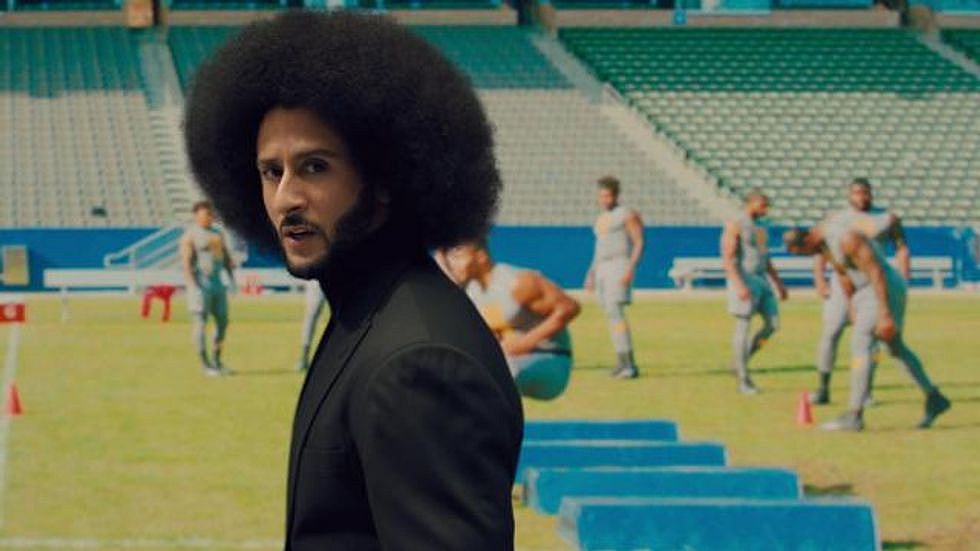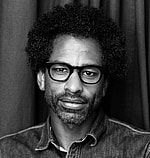I liked Colin Kaepernick’s new Netflix memoir show, Colin In Black and White, it’s an interesting look at his teenage years growing as a football player and learning about racism from microaggressions to systemic injustice. Kaepernick gives us a valuable look at several parts of the way America treats young Black people, but there’s one moment in his Racism 101 class that got a lot of attention that stood out to me a false, unnecessary step.
Within the first few minutes of the show, Kaepernick talks about the NFL Scouting Combine and likens it to slavery. He’s far from the first person to make this link and, every time I hear it, I scream inside and pull out some hair and envision a tiny Black angel dying. The analogy is so false it’s intellectually bankrupt and disrespectful.
The NFL Combine is where unsigned football players gather to be examined by NFL coaches and scouts. They show off their athleticism and their bodies get microscoped and their minds get poked, too. They have to show teams who they are as players and in the course of that players have to let teams see them wearing few clothes and be weighed and tested in other physical ways. The players, mostly Black, are paraded in front of powerful NFL figures, mostly White, who evaluate their bodies and thus their ability to work hard for them in the future.
If you leave the comparison there, then yes, that is reminiscent of the auction block where White men closely evaluated the bodies and the work ability of Black men and women. That much of a likeness is gross. But for an analogy to be honest it has have more points of likeness than that. When we get a headache we open a bottle of aspirin and there’s a small tuft of cotton that we have to pick out. Slaves picked cotton. Is picking cotton out of an aspirin bottle like slavery? No that’s ridiculous because there’s so many other parts of the comparison that are unalike. Well, the same goes for the “NFL Combine is like slavery” analogy.
People who are at the NFL Combine have made an enthusiastic choice to be there. They don’t just want to be there, they fought to be there. They are exercising their will in choosing to be there. Enslaved people were kidnapped and trafficked and kept on plantations by violence and racist laws. They had no agency and exercised no will except when they ran away. Also, players at the NFL Combine have a solid chance of earning a six or seven figure salary and thus vaulting into the upper middle class or the upper class. This is obviously 180 degrees away from slavery.

Also, people at the Combine are fighting to win some of the most coveted jobs in American life. Making an NFL team, even if you’re just a third-stringer who never sees the field, means you will be held in high esteem by many people who will look up to you for that athletic achievement forever.
Please stop saying the business of athletics is like slavery. It’s such a dishonest analogy. We can see the remnants of slavery in the prison system where there’s inhuman conditions and torture. We can see the remnants of slavery in low-wage workers in factories and sweatshops and Amazon fulfillment warehouses. Sometimes these sorts of people are locked in, cannot take breaks, and are lorded over by cruel bosses who subject them to dehumanizing rules.
Yes, sometimes athletes are traded from one team to another without their consent but is it really the same as slaves being moved from one plantation to another? The players are moving with their families and going from one arena where they play in front of thousands of adoring fans to a different arena and a different giant group of adoring fans.
There is much that’s wrong with the NFL and pro sports, much that’s unfair to players, but we really should stop saying it’s like slavery because the two things are as different as apples and spaceships.

Touré is the host of the podcasts Toure Show and Democracyish and the podcast docuseries Who Was Prince? He is also the author of six books.
Have you subscribed to the Grio podcasts, ‘Dear Culture’ or Acting Up? Download our newest episodes now!
TheGrio is now on Apple TV, Amazon Fire, and Roku. Download theGrio today!

